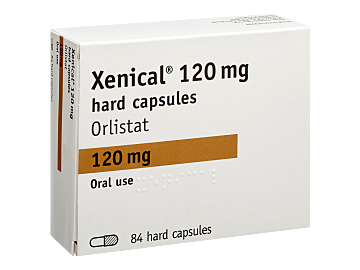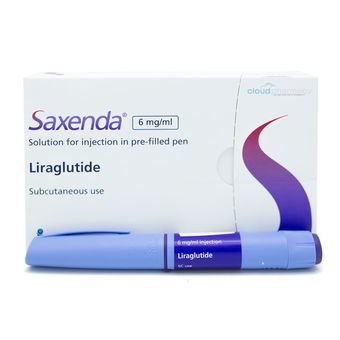
Navigating the Ozempic Landscape A Comprehensive Guide to Availability and Access
In recent years, Ozempic has gained significant popularity as a weight management solution, particularly among individuals navigating the challenges of obesity and type 2 diabetes. The brand name for semaglutide, Ozempic was initially developed for those struggling to control their blood sugar levels, but its remarkable propensity for promoting weight loss has drawn widespread attention. However, accessing this medication can be a convoluted journey in the UK, fraught with various options, eligibility criteria, and potential risks. This comprehensive guide aims to unravel the complexities surrounding where to buy Ozempic, offering insights into its availability, purchasing avenues, and key considerations for consumers.
Where to Buy Ozempic: A Comprehensive Guide

When it comes to finding where to buy Ozempic, patients are presented with multiple pathways, each with its unique set of advantages and challenges. Understanding your options is crucial in making an informed choice.
The pursuit of Ozempic begins with a thorough understanding of its prescription requirements, which are essential for ensuring safe usage. Since Ozempic is classified as a prescription medication, individuals must navigate through established healthcare channels to obtain it legally and safely. This can include both public healthcare systems, such as the NHS, and private healthcare options.
Additionally, the growing demand for weight management solutions has given rise to various online pharmacies and platforms that claim to provide Ozempic. Although these alternatives may seem convenient, they require careful consideration to ensure safety and legality. Ultimately, choosing the right route for obtaining Ozempic entails weighing numerous factors, including professional guidance, medication authenticity, and personal health requirements.
Understanding Prescription Requirements
To purchase Ozempic legally in the UK, one must first obtain a prescription from a licensed healthcare provider. This requirement underscores the importance of proper medical oversight when using the medication.
Obtaining a prescription typically involves a consultation with a General Practitioner (GP) or a specialist who will assess your medical history, present symptoms, and eligibility for the drug. This assessment not only helps determine whether Ozempic is suitable for you, but it also allows the healthcare provider to monitor for any potential side effects, ensuring the medication’s safe use.
It’s important to note that while some individuals might seek Ozempic solely for weight loss, the primary indication for its prescription remains type 2 diabetes management. Therefore, a clear understanding of your health status and needs is fundamental before venturing into acquiring the medication.
The Role of Healthcare Providers
Healthcare providers play a pivotal role in guiding patients through the process of obtaining Ozempic. Their expertise ensures that individuals receive personalized advice based on their unique medical circumstances.
During initial consultations, providers can elucidate the expected benefits of Ozempic and what patients can realistically expect regarding weight loss outcomes. They will also discuss lifestyle modifications, dietary adjustments, and exercise regimens that can enhance the effectiveness of the medication.
Furthermore, healthcare providers can help patients navigate the emotional and psychological aspects of weight management. They offer support and resources to help individuals develop healthier habits that extend beyond pharmacological intervention, fostering a holistic approach toward achieving sustainable long-term results.
Evaluating Online Purchasing Options
With the rise of digital healthcare solutions, many patients are now considering online pharmacies as a potential source for obtaining Ozempic. While this option may appear convenient, exercising caution is paramount.
Online pharmacies can vary significantly in terms of reliability and legitimacy. Some platforms may offer Ozempic at prices that seem too good to be true, potentially indicating counterfeit products or substandard medications. It’s crucial to ensure that any online pharmacy is registered with the General Pharmaceutical Council (GPhC) and adheres to UK regulations governing prescription medications.
In addition to verifying credentials, consumers should read reviews and do background checks on online suppliers. Engaging with trustworthy sources can minimize the risk of encountering scams while providing peace of mind regarding the authenticity of the medication being purchased.
Ozempic in the UK: Availability and Options

Accessing Ozempic in the UK can feel overwhelming, particularly amid the myriad of options available. Whether through the NHS or private healthcare, understanding the nuances of each avenue is vital for making informed decisions about treatment.
Ozempic’s accessibility primarily depends on a person’s eligibility for its use, which is determined by specific medical criteria. The current landscape reflects ongoing changes in treatment protocols, especially concerning weight management applications. As such, it’s essential to stay updated on the latest guidelines pertaining to Ozempic’s prescribing practices.
This section delves deeper into the options available for acquiring Ozempic in the UK, highlighting its availability via public healthcare systems and private avenues, as well as evaluating the implications of each choice.
Access Through the NHS
For many residents in the UK, the National Health Service (NHS) serves as the primary health care provider. Patients diagnosed with type 2 diabetes may find it easier to access Ozempic through this system, provided they meet certain clinical criteria.
Under NHS guidelines, Ozempic is prescribed primarily for individuals whose diabetes cannot be effectively managed through other means. Patients must demonstrate a clear need for the medication, along with a commitment to maintaining their health through lifestyle changes and regular monitoring.
However, it’s important to recognize that the NHS currently does not routinely prescribe Ozempic solely for weight management. Individuals seeking the medication for this purpose may find themselves at a disadvantage, as the system prioritizes evidence-based treatments for diabetes care over weight loss interventions.
Private Healthcare Solutions
Another avenue for obtaining Ozempic involves consulting private healthcare providers. This route allows greater flexibility regarding prescriptions and may cater to individuals specifically seeking weight management solutions.
Private clinics and general practice facilities often have more lenient prescribing criteria compared to the NHS, allowing patients to receive medications like Ozempic without needing a diabetes diagnosis. However, this convenience often comes with higher costs, encompassing both consultation fees and the price of the medication itself.
Despite the additional expense, many individuals opt for private healthcare due to reduced waiting times and more personalized care. The opportunity to engage directly with specialists experienced in weight management can facilitate a tailored treatment plan that addresses individual goals and concerns.
Potential Changes in Guidance
As the medical community continues to evaluate the efficacy of semaglutide for weight management, there is potential for future changes in prescribing guidance. The National Institute for Health and Care Excellence (NICE) is actively assessing the use of semaglutide as a weight-loss aid, paving the way for new recommendations that could alter access routes within the NHS.
Patients interested in Ozempic for weight management should regularly consult credible sources and maintain open communication with their healthcare providers. Staying abreast of updates and emerging guidelines will empower individuals to make informed decisions regarding their treatment options.
Purchasing Ozempic Online: Safety and Legality

While the convenience of online shopping extends to pharmaceuticals, purchasing Ozempic online requires careful consideration of safety, legality, and ethical implications. The digital marketplace can be rife with both legitimate and fraudulent vendors, making it essential to discern trustworthy sources.
Before embarking on the journey to procure Ozempic online, prospective buyers must familiarize themselves with key factors that will guide their choices and safeguard their health.
Assessing Online Pharmacy Credentials
One of the most critical steps in purchasing Ozempic online is verifying the credentials of the pharmacy. Legitimate online pharmacies in the UK should be registered with the General Pharmaceutical Council (GPhC), confirming their compliance with regulations governing the sale of prescription medications.
Additionally, reputable pharmacies will often display contact information, including a valid phone number and physical address, allowing customers to reach them in case of inquiries or concerns. Buyers should take caution if a website lacks transparency regarding licensing and credentials, as this may indicate a lack of legitimacy.
Recognizing Warning Signs
Potential buyers should remain vigilant for warning signs that may indicate a fraudulent pharmacy. These red flags include:
- Offerings of Ozempic at prices significantly lower than market value.
- No requirement for a prescription.
- Limited or no verifiable customer reviews.
In particular, websites lacking necessary verification or offering exceedingly low prices should raise alarm bells. Engaging with these platforms poses considerable risks, as counterfeit medications can have dangerous consequences for health.
Understanding Legal Implications
Purchasing Ozempic online also raises legal considerations. Individuals must be aware that acquiring prescription medications without a prescription violates UK law. Engaging in activities that circumvent proper medical oversight jeopardizes not only one’s safety but also exposes individuals to legal ramifications.
It is imperative for consumers to remain diligent in ensuring that any online pharmacy adheres to regulatory standards. By following established guidelines and only engaging with verified suppliers, individuals can mitigate the potential risks associated with purchasing medications online.
Ozempic on the NHS: Eligibility and Access
For those eligible for healthcare through the NHS, understanding the criteria that govern access to Ozempic is crucial. As a medication primarily prescribed for type 2 diabetes, the NHS has specific guidelines in place regarding its use and availability.
By gaining insight into these eligibility requirements, prospective patients can better navigate the healthcare system to obtain the necessary prescriptions.
Criteria for NHS Prescribing
Eligibility for Ozempic under the NHS hinges upon an individual’s diabetes diagnosis and overall health status. GPs will take a comprehensive view of a patient’s medical history before determining whether Ozempic is an appropriate treatment option.
Generally, the NHS considers prescribing Ozempic for individuals with type 2 diabetes who exhibit difficulty managing their blood glucose levels with other therapies. Additionally, patients may qualify for Ozempic if they experience weight-related comorbidities stemming from their condition.
A referral to an endocrinologist or diabetes specialist may also be necessary to further evaluate the patient’s suitability for Ozempic. This process ensures that those using the medication receive consistent monitoring and support throughout their treatment journey.
The Importance of Regular Monitoring
Once prescribed Ozempic, NHS patients will typically undergo routine follow-ups to assess their response to the medication. These appointments are essential for tracking improvements in blood sugar control and any weight management goals.
Regular monitoring allows healthcare providers to make informed decisions regarding dosage adjustments or alternative treatment options if necessary. Moreover, these evaluations foster open communication between patients and providers, encouraging discussions about any side effects or concerns that may arise during the course of treatment.
Navigating Waiting Times
While the NHS provides essential services to millions, accessing timely treatment can sometimes present challenges. Patients seeking Ozempic may encounter waiting times for initial consultations, referrals, and follow-up appointments.
Given these potential delays, individuals might consider exploring private healthcare options if immediate access is a priority. However, it’s essential to balance urgency with safety, ensuring that any route taken aligns with appropriate medical guidelines.
Liquid Ozempic in the UK: Facts and Alternatives
As innovative formulations in pharmaceuticals evolve, many patients inquire about the availability of liquid Ozempic in the UK. Despite interest in this format, it’s essential to clarify the facts and explore potential alternatives for weight management.
Understanding the current status of liquid Ozempic can empower individuals with accurate information while steering them toward viable options for their weight loss journeys.
Current Availability of Liquid Ozempic
At present, liquid formulations of semaglutide are not commercially available in the UK. The approved version of Ozempic is delivered via a pre-filled injection pen, designed for self-administration.
Although some pharmaceutical companies may be conducting research into alternative delivery formats, there is no confirmed timeline for the release of liquid Ozempic. Individuals should remain cautious about claims regarding the availability of liquid formulations from unofficial sources.
Exploring Alternative Medications
For individuals seeking weight management solutions, several alternatives exist alongside Ozempic. These medications offer different mechanisms of action and may be more appropriate depending on individual health profiles.
Liraglutide (Saxenda) is another GLP-1 receptor agonist that has been approved specifically for weight management. Like Ozempic, it promotes feelings of fullness and helps regulate appetite, making it effective for individuals aiming to lose weight.
Orlistat (Alli, Xenical) is another alternative, working by blocking the absorption of fat from food consumed. It presents a non-hormonal option for individuals seeking assistance with weight loss.
Phentermine (Adipex-P, Lomaira) is an appetite suppressant medication that can help reduce caloric intake. However, it may not be suitable for everyone due to potential side effects, so consulting with healthcare professionals is essential.
Lifestyle Modifications and Support
While medications can play a significant role in weight management, adopting a comprehensive approach that includes lifestyle modifications is crucial for long-term success. Strategies such as maintaining a balanced diet, engaging in regular physical activity, and addressing emotional eating can complement pharmacological treatments.
Support networks, including healthcare providers, nutritionists, and peer groups, can further enhance motivation and accountability during the weight loss journey. By combining medication with behavioral changes, individuals can achieve more sustainable results.
Finding a Reliable Ozempic Supplier in the UK
Identifying a trustworthy supplier for Ozempic is paramount to ensuring safety and efficacy. With various options available, individuals must exercise discernment when selecting a source for their medication.
This section outlines strategies for finding reliable suppliers while emphasizing the importance of diligence in the procurement process.
Verifying Authorized Pharmacies
The first step in locating a reliable Ozempic supplier is to verify pharmacy credentials. Certified pharmacies will be registered with the General Pharmaceutical Council (GPhC) and comply with UK regulations for selling prescription medications.
Moreover, reputable pharmacies often provide transparent contact information and easy access to customer service, allowing individuals to address any inquiries or concerns promptly. Engaging with accredited pharmacies minimizes the risk of encountering counterfeit products while safeguarding health.
Prioritizing Recommendations
Seeking recommendations from healthcare providers or trusted friends can also lead to reliable suppliers. Doctors and pharmacists possess invaluable knowledge and can often direct patients to reputable pharmacies that align with their values and needs.
Additionally, patient advocacy groups and online forums can serve as useful resources for sharing experiences and identifying trustworthy suppliers. Engaging with these communities can foster a sense of connection while equipping individuals with insights into the procurement process.
Documenting Purchase History
Maintaining a record of purchases can provide additional security and reassurance when acquiring Ozempic. Keeping documentation such as receipts, order confirmations, and pharmacy details enables patients to track their medication supply while serving as a reference for future needs.
Furthermore, should any discrepancies arise regarding medication authenticity or quality, having a documented purchase history allows individuals to address issues directly with suppliers or healthcare authorities.
Cost Comparison of Ozempic in the UK: Private vs. NHS
The cost of Ozempic varies significantly depending on the avenue chosen for procurement. Patients comparing private healthcare options with NHS access must weigh financial implications alongside factors such as convenience and personalized care.
This section explores the pricing structures associated with purchasing Ozempic through different pathways, equipping individuals with the knowledge needed for informed decision-making.
NHS Pricing Structure
Under the NHS framework, patients benefit from subsidized prescription costs, typically resulting in lower out-of-pocket expenses. For eligible individuals with a valid prescription, the cost of Ozempic is considerably more affordable compared to private healthcare options.
However, it’s essential to consider that accessing Ozempic through the NHS may involve waiting periods based on appointment availability and other logistical challenges. Patients may need to account for time spent navigating the healthcare system in conjunction with the potential cost savings.
Private Healthcare Costs
Conversely, opting for private healthcare typically incurs higher costs. Consultation fees for private GP visits, coupled with the full retail price of Ozempic, can add up quickly, making this option less accessible for some individuals.
Patients seeking Ozempic in private settings should prepare for the financial implications and consider their budget when determining the best pathway. While private healthcare offers expedited access and specialized care, individuals must assess whether the benefits outweigh the financial investment involved.
Insurance Coverage and Subsidies
For those with private health insurance, it’s important to review coverage details regarding Ozempic and related consultations. Insurance plans may vary in their coverage of prescription medications, impacting overall costs.
Some patients may also explore available subsidies or financial assistance programs to alleviate the burden of purchasing Ozempic privately. Exploring these options can provide valuable relief, empowering individuals to prioritize their health without compromising their financial stability.
Alternatives to Ozempic for Weight Loss in the UK
While Ozempic has emerged as a notable player in the weight management arena, a variety of alternative medications can support individuals in achieving their weight loss goals. Understanding these options helps expand the horizons of available treatments and fosters informed decision-making.
This section offers insights into prominent alternatives to Ozempic while examining their mechanisms of action, efficacy, and considerations for use.
Liraglutide (Saxenda)
Liraglutide, marketed as Saxenda, is another GLP-1 receptor agonist designed specifically for weight management. Similar to Ozempic, Saxenda works by promoting satiety and regulating appetite, making it effective for individuals seeking to shed excess pounds.
Clinical trials have demonstrated positive results regarding weight loss outcomes when using Saxenda, along with improvements in metabolic health markers. However, it’s essential to discuss eligibility and potential side effects with healthcare providers before pursuing this treatment option.
Orlistat (Alli, Xenical)
Orlistat operates through a distinct mechanism, blocking the absorption of dietary fats in the gastrointestinal tract. This medication can support weight loss by reducing caloric intake from fat-rich foods.
While Orlistat presents a non-hormonal option for weight management, it may come with gastrointestinal side effects such as oily stools and digestive discomfort. Patients should weigh the potential benefits against these risks when considering Orlistat as a viable alternative.
Phentermine (Adipex-P, Lomaira)
Phentermine is an appetite suppressant medication that prompts weight loss by altering neurotransmitter activity in the brain. It is typically prescribed for short-term use and has shown efficacy in aiding weight reduction.
However, phentermine may not be suitable for all individuals due to potential side effects and contraindications. Consulting with healthcare providers is essential to assess suitability and establish a comprehensive weight loss plan.
Emphasizing Lifestyle Modifications
Regardless of the chosen medication, successful weight management invariably relies on implementing sustainable lifestyle changes. Factors such as healthy eating, regular physical activity, and stress management play integral roles in supporting long-term success.
Engaging with nutritionists, fitness trainers, or wellness coaches can further reinforce the path toward achieving weight loss goals. By integrating a holistic approach that encompasses both pharmacological and behavioral strategies, individuals can enhance their chances of sustainably maintaining their weight.
Ozempic Side Effects and Potential Risks
Like all medications, Ozempic carries the possibility of side effects and risks. Understanding these potential adverse effects is essential for informed decision-making and proactive management.
This section delves into common and rare side effects associated with Ozempic, while also emphasizing the importance of regular communication with healthcare providers throughout the treatment process.
Common Side Effects
Individuals taking Ozempic may experience common side effects, including nausea, vomiting, diarrhea, and constipation. These symptoms typically arise as the body adjusts to the medication and may diminish over time.
While these side effects can be uncomfortable, they are generally manageable with proper guidance and support. Communicating openly with healthcare providers about any discomfort or changes in symptoms can help tailor treatment plans to minimize adverse effects.
Rare but Serious Risks
Though uncommon, some serious side effects associated with Ozempic warrant caution. These may include pancreatitis, gallbladder issues, and thyroid tumors. Due to their rarity, these complications may not affect every user; however, becoming familiar with these risks allows for proactive monitoring.
Additionally, individuals with a family history of thyroid cancer should approach Ozempic with vigilance and consult their healthcare providers regarding potential genetic predispositions.
Importance of Monitoring and Consultation
Regular check-ins with healthcare providers are instrumental in successfully managing potential side effects while using Ozempic. Routine monitoring allows practitioners to assess the efficacy of the medication, adjust dosages as necessary, and address any concerns.
Patients should feel empowered to ask questions, voice their concerns, and share their experiences throughout their treatment journeys. Establishing a collaborative relationship with healthcare providers fosters a supportive environment conducive to effective weight management.
Ozempic and Weight Management: A Comprehensive Overview
Ozempic represents a potent tool in the arsenal of weight management solutions, offering individuals the opportunity to regain control over their health. While it holds substantial promise, it’s important to view Ozempic within the context of a multifaceted approach to weight loss.
This section explores the broader implications of utilizing Ozempic as part of a comprehensive weight management strategy, emphasizing the significance of lifestyle modifications and emotional support.
The Role of Ozempic in Weight Loss
Ozempic functions primarily by mimicking the effects of a hormone called GLP-1, which regulates appetite and food intake. This makes it an effective agent for promoting weight loss in individuals struggling with obesity or excess body weight.
However, it’s crucial to understand that Ozempic is not a standalone solution; rather, it serves as one component in a larger picture of weight management. Sustainable results require dedication to lifestyle changes, including dietary adjustments and increased physical activity.
Integrating Lifestyle Modifications
Incorporating healthy eating habits and regular exercise into daily routines enhances the effectiveness of Ozempic and lays the groundwork for long-term success. Developing a balanced meal plan focused on whole foods, lean proteins, and healthy fats can support weight loss efforts.
Physical activity plays an equally important role, as it burns calories and helps maintain muscle mass. Finding enjoyable forms of exercise can foster consistency and make physical activity a rewarding aspect of daily life.
Seeking Emotional and Psychological Support
Weight management is often accompanied by emotional and psychological challenges. Addressing underlying issues related to food, body image, and self-esteem can significantly impact an individual’s ability to succeed in their weight loss journey.
Engaging with trained therapists or joining support groups can provide valuable resources for developing coping mechanisms and maintaining motivation. Building a strong support network bolsters resilience and encourages individuals to stay committed to their weight loss goals.
Conclusion
Navigating the Ozempic landscape in the UK requires a nuanced understanding of the various avenues available for obtaining this medication. From NHS access to private healthcare options and online purchasing, individuals face a plethora of choices that necessitate careful consideration.
Prioritizing legitimate channels for access ensures the safety and authenticity of the medication while fostering responsible usage. Additionally, exploring alternative medications and embracing lifestyle modifications enhances the likelihood of achieving sustainable weight management outcomes.
Ultimately, seeking guidance from qualified healthcare professionals empowers individuals to make informed decisions regarding their treatment journeys. As the landscape surrounding Ozempic evolves, staying updated on developments allows individuals to embrace opportunities for enhancing their health and well-being.
You can always visit our shop ozempic pharma for all semaglutide products
All Categories
Recent Posts
Tags


